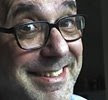[This article spans technology and politics, I've cross posted it in Mickeleh's Take.]The Scooter Libby case goes to the jury today. It hinges on this question: did he lie to the FBI about how and when he learned about Mrs. Wilson, or was he innocently mis-remembering?
Apparently, we will soon have the technology to expedite trials like this.
Gordon Bell and Jim Gemmell, in
Scientific American, describe research they are doing at Microsoft on harnessing the technology to record everything.
Scientific American: A Digital Life [ INFORMATION TECHNOLOGY ]
New systems may allow people to record everything they see and hear--and even things they cannot sense--and to store all these data in a personal digital archive
Storage is getting cheap. Processors continue to obey Moore's law. Network access is getting ubiquitous. Sensors of various types being embedded everywhere. (Carry a cell phone? Then you're carrying a microphone and a camera that know where you are. hmmm.)
Mickeleh's Take: Feds Using Cell Phones to Eavesdrop
...feds can download software to many kinds of cell phone and then have the ability to turn on the microphone and listen in. Even when the cell phone is turned "off."
Bell has amassed 150 gigabytes of data in six years, and his descriptions of what he can do with it make it sound really cool. Without a good overlay of intelligence and analysis, however, an archive of everything in our lives might turn all of us into clones of the Borges character
Funes, the Memorious, who remembered everything but understood nothing.
Bell and Gemmell acknowledge that "the prospect that identity thieves, gossipmongers or authoritarian states could gain access to such records is frightening." And, with the optimism of every scientist in a fifties sci-fi movie, they seem assured that technologies can be tamed so as to minimize potential dangers. I wonder if Admiral (
Total Information Awareness) Poindexter would agree.
Mickeleh's Take: "If you have nothing to hide, you have nothing to fear." [EVIL LAUGH]



